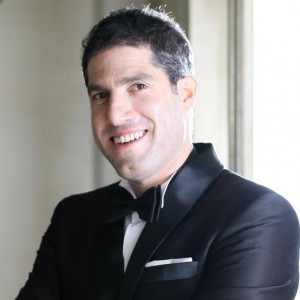국내 스타트업의 글로벌 진출이 화두입니다. 벤처스퀘어는 비욘드 시큐리티(Beyond Security)의 창업자이자 CEO로서 이스라엘 멘토로 구성된 한국 최초의 시드 펀드인 코이스라 시드 파트너스(KOISRA Seed Partners)의 이사인 아비람 제닉(Aviram Jenik)이 글로벌을 지향하는 한국 스타트업에게 전하는 칼럼을 연재합니다. 국내 스타트업의 글로벌 진출에 도움이 되길 바라며, 기사 게재를 허락해 주신 아비람 제닉에게 지면을 통해 감사 말씀을 전합니다. 칼럼 전체 내용은 여기를 참고해주세요.

When to stop raising money
There’s a popular saying in Silicon Valley: You raise money when you can, not when you need. It seem to make sense: raising money is affected by trends: in 1999 almost any startup that had the words “dot com” in the name could easily raise money in Silicon Valley. In 2000, the company “pets.com” raised $300 Million with a multi-Billion dollar valuation even though the company was less than 2 years old and their business plan consisted of losing money on every single product sale. On the other hand, back in 2004, the Korean “Daum” bought the search engine Lycos that competed with Google at the time for only $95 Million, 98% less than its value just 4 years earlier (Lycos was sold to a Spanish telecommunication company in 2000 for $12.5 Billion).
So if the difference between a Billion dollar valuation and a ten Million dollar valuation can be just the timing, regardless of the quality of the company, it makes sense that in good times (and 2015 seems to be a very good time to raise money) startups should raise as much as possible. Right?
The main problem with this logic is that the people who coined the phrase were VCs. The business of VCs is funding, and so they want startups to always be seeking funding, just like a shoemaker would want people to buy more shoes. VCs want to encourage startups to come to them and ask for funding; there is no downside for the VC. But there is, in fact, a downside for the startup: the main down side is the huge distraction of funding.
Only people who have actively (and successfully) raised funding understand how time consuming and how distracting the funding process is. For one, it’s very binary: you get funding or you don’t. Until you get the funding, you have nothing. There is no “90% finished” when it comes to funding. This means you have to try your best, until the funding is completely done. It’s a stressful process: it’s not like a semester in university that may be tough, but has an end date; also, no one guarantees you’ll be receiving funding even if you did everything right all the way to the end – you may still end up with nothing.
Another issue about funding is that any little thing can sabotage the funding process, and VCs sometimes delay, reverse course or just lose attention – all the while the startup has to keep its upmost effort to continue the funding process, answer questions, provide documents and meet when needed. Funding requires a lot of attention.
Possibly the most difficult thing about funding is that it can’t be delegated or outsourced. The founder or founders have to be personally involved, in almost all stages of the funding process, and founder time is the most expensive resource to a startup. So while the funding is being done, crucial processes like product development, managing the team, and recruiting customers may all slow down because of lack of attention from the founder.
One other thing that I personally don’t like about funding is the fact that every funding round puts a ticking clock on the table that counts down to zero: If you received money, you are expected to use it, which means at some time you will run out. Like a drug addict, as you get close to running out of funding you will need more funding that will just reset the clock and increase your dependency on more funding, and so on. It’s hard to ignore that ticking clock when you’ve just finished an exhaustive funding round; the irony is: the more successful the funding round was, the higher your expenses are likely to be, and so the bigger your dependency is on getting that next round.
This is all not to say you should not raise money at all. Getting funded is important, sometimes crucial. But know when to stop – there actually is such as thing as too much funding, and there definitely is a time to say: “No, thank you. I will not consider more funding even if I’m offered”.








You must be logged in to post a comment.